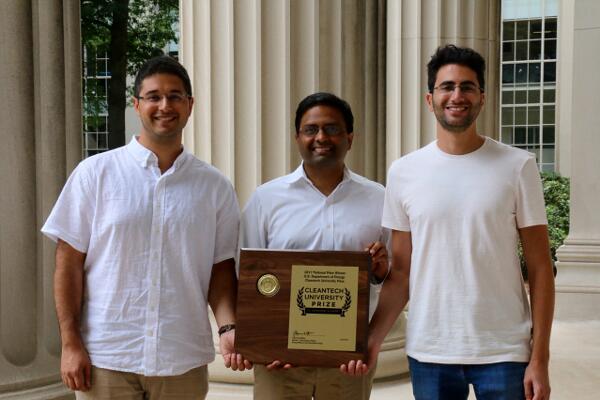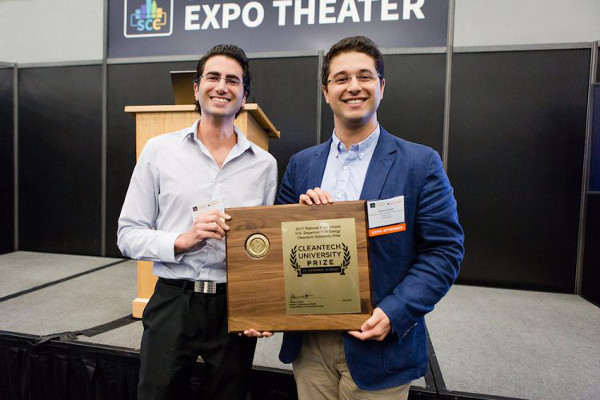Start-up wants to improve power plants’ water use
Article By : MIT, Tata Centre for Technology and Design

MIT researchers Kripa Varanasi, Maher Damak and Karim Khalil have developed a technology that uses electrical fields to recapture up to 80% of water vapour plumes that can be recycled into the system.
A clean energy plan pitched by start-up Infinite Cooling has bagged the top prize at the U.S. Department of Energy's Cleantech University Prize national competition in Austin, Texas.
The start-up, led by MIT Department of Mechanical Engineering Associate Professor Kripa Varanasi along with graduate students and Tata fellows Maher Damak and Karim Khalil, has developed a patent-pending technology that uses electrical fields to recapture up to 80% of the water vapour plumes that would normally escape from cooling towers of power plants through evaporation. The resulting water from the collected steam is then recycled back into the cooling system.
“The power industry is a particularly interesting application for our technology because it has the biggest water needs. Power plants consume more than half of the country’s water and that inspired us to create a solution,” said Khalil.
By recapturing water vapour plumes and making cooling towers more of a closed system, Infinite Cooling’s technology could decrease power plant water consumption by as much as 30%. This translates into savings of millions of gallons of water and millions of dollars each year.
"A 250-megawatt power plant uses approximately 3,000 gallons of water every minute," said Damak, noting the technology could have significant environmental and economic impact worldwide, particularly in the United States, China, India and Europe.

Figure 1: Tata Fellow Maher Damak and Karim Khalil, both PhD candidates from mechanical engineering, pitched their clean energy business plan, Infinite Cooling, and took first place at the U.S. Department of Energy’s (DOE’s) Cleantech UP national collegiate business plan competition. (Source: Tata Centre)
Infinite Cooling technology highlights a balanced understanding of water and energy needs. If cooling technology is too energy-intensive and costs overshadow potential water savings, power plants may not be willing to adopt such a solution.
“We are really solving the problem at the water and energy nexus,” said Varanasi, noting that popularity considerations are the key.
"Energy needs will double and there will be lots of water that is needed for these power plants. So much of that water is lost from the cooling towers, so if our technology can help recapture and reuse that water we could dramatically meet important environmental needs while saving power plants’ enormous water costs," the professor said. “We are grateful for the Tata Centre for Technology and Design’s early seed funding that helped us take it from an idea to a proof-of-product stage."
Infinite Cooling is currently participating in the educational accelerator Delta V at MIT, which will help guide them in building a sustainable business. Varanasi, Damak, and Khalil have begun an industrial pilot test at the local MIT Central Utilities Plant, where they are monitoring and gathering data on how water consumption changes with the use of their technology.
The next step, Varanasi said, is to spinoff and start a company so that the technology can be brought to not only the power industry, but also other industries such as commercial HVAC, large data centres, hospitals and even resorts.